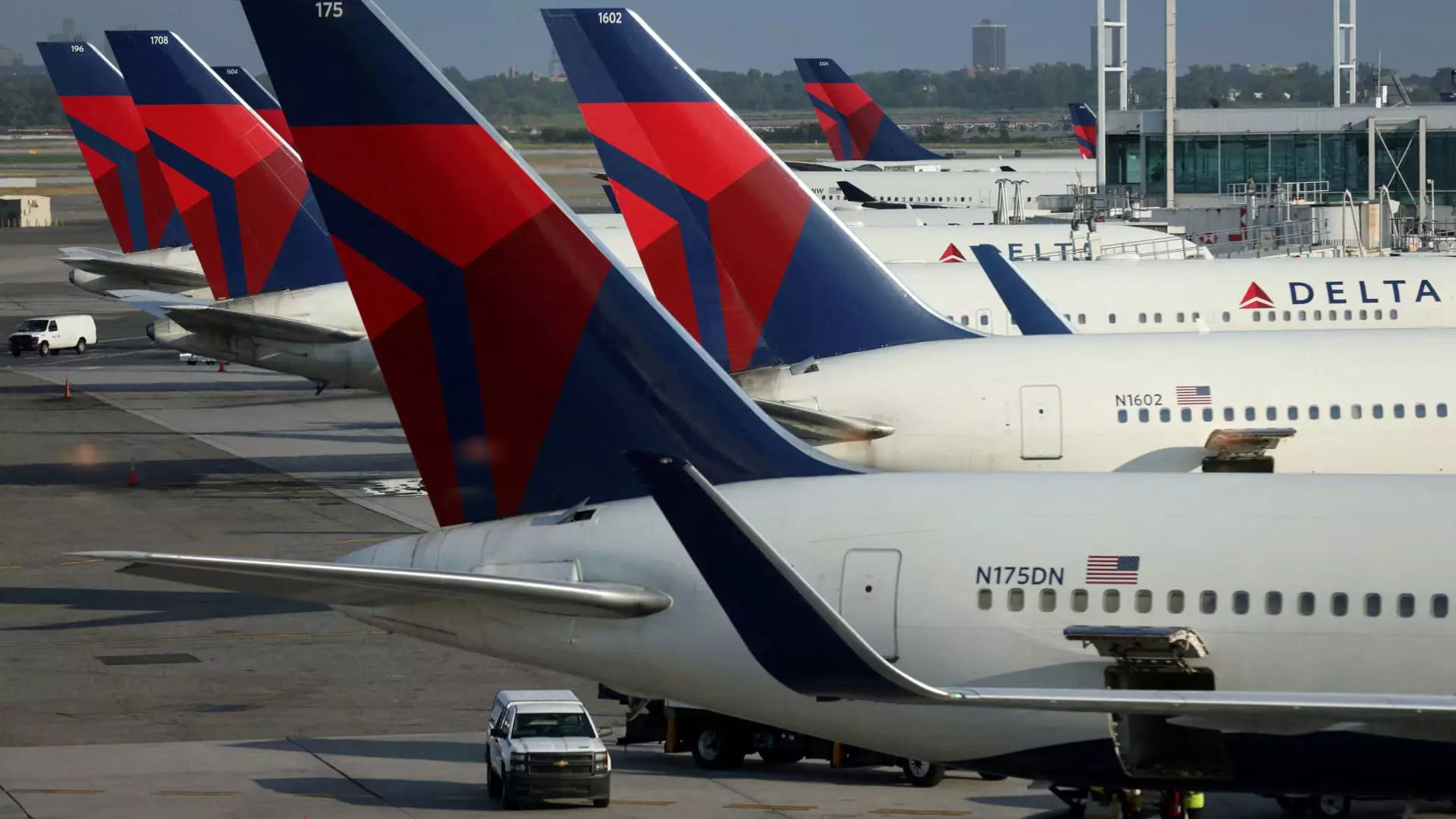In a notable legal development on Friday, Delta Air Lines initiated a lawsuit against cybersecurity giant CrowdStrike in Georgia, citing breach of contract and negligence. This action stems from a significant software outage in July that crippled Delta’s operations, leading to the cancellation of approximately 7,000 flights and deeply impacting the airline’s revenue stream. This case highlights the critical importance of reliable technology partnerships in the aviation industry and serves as a wake-up call for companies depending on external software solutions.
The Incident and Its Repercussions
The outage, attributed to a faulty software update linked to Microsoft’s Windows operating system, created a domino effect that resulted in Delta’s claims of $380 million in revenue losses and an additional $170 million in operational costs. In comparison to its peers, Delta struggled to regain normal operations post-outage, amplifying the damage that resulted from this technological failure. This incident underscores the vulnerabilities that come with integrating third-party software into critical business functions in high-stakes industries like aviation.
In its complaint, Delta accused CrowdStrike of carelessness, arguing that the company’s alleged shortcuts in its testing and certification processes caused widespread chaos. Delta’s legal team pointed out that if the update had been adequately tested on at least one machine prior to wide deployment, the failure could have been avoided entirely. The lawsuit demands compensation that encompasses not only financial losses but also punitive damages, marking a serious challenge for CrowdStrike as it faces the repercussions of this incident in court.
Delta’s actions carry significant weight in the corporate landscape, particularly in terms of holding technology vendors accountable for their products. CEO Ed Bastian expressed a strong commitment to seek justice for the chaos caused, stating that the disruption warranted full compensation. This legal battle may set a precedent within the tech industry, further establishing the need for rigorous testing and vetting of software updates, especially those deployed across essential sectors.
Future Steps for CrowdStrike and the Industry
In the aftermath of the incident, CrowdStrike has acknowledged its missteps, with CEO George Kurtz publicly apologizing and vowing to implement changes to prevent future occurrences. The company downgraded its full-year financial forecast in light of the fallout from the outage, showing the profound financial implications of reputational damage and operational failures. Furthermore, discussions between CrowdStrike and Microsoft underscore the urgent need for collaborative improvements and enhanced security protocols among technology vendors.
As Delta Air Lines moves forward with its lawsuit against CrowdStrike, the case serves as a crucial reminder of the intricacies involved in partnerships between technology providers and their clients. It emphasizes the necessity for diligence in software updates and heightens awareness regarding the far-reaching impacts that such technological failures can have on operations. As industries become increasingly reliant on digital infrastructure, the lessons derived from this incident will be critical in shaping more resilient operational frameworks in the future.

